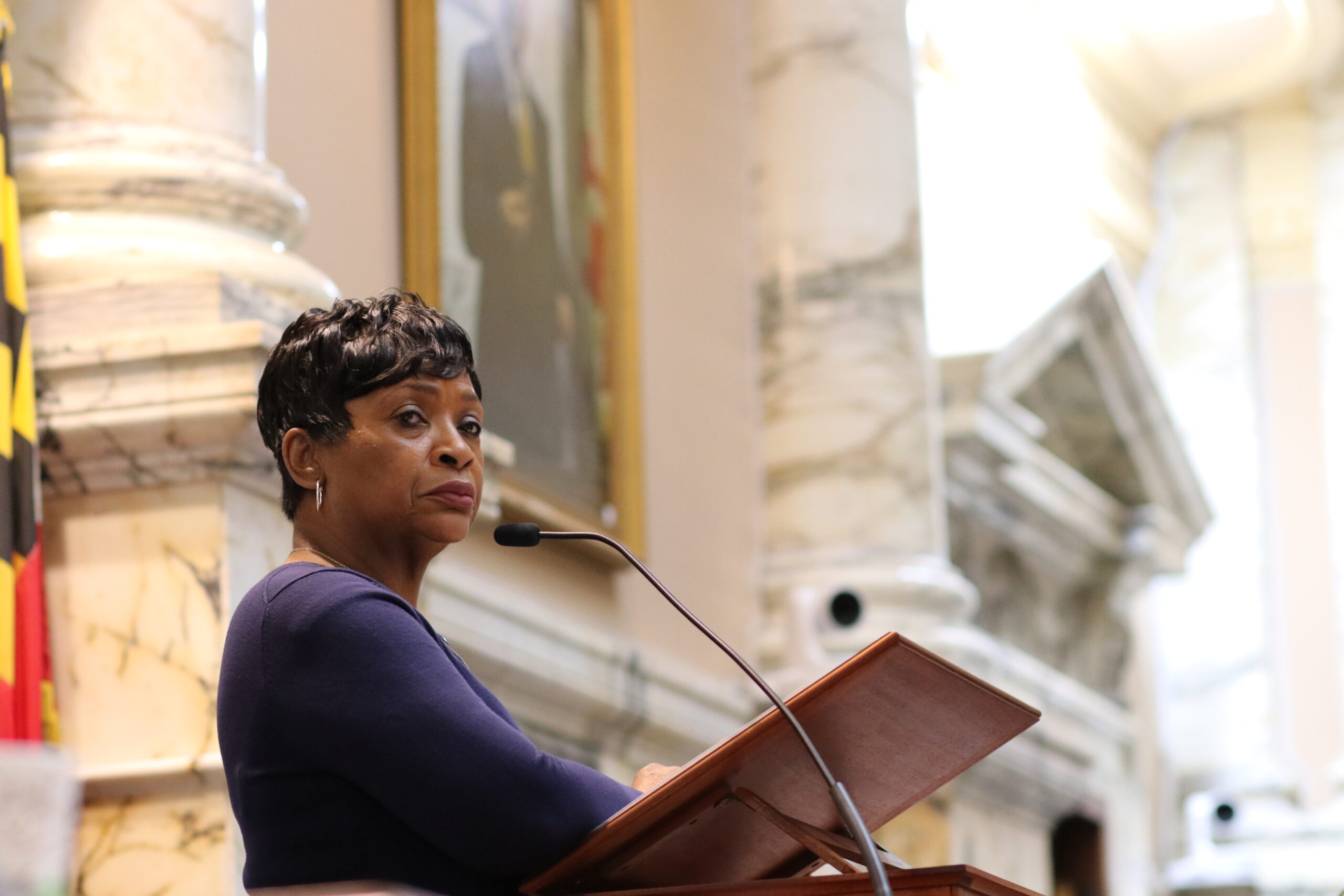House Speaker Intends to Reintroduce HBCU Funding Bill Instead of Overriding Gov. Hogan’s Veto

House Speaker Adrienne A. Jones (D-Baltimore County) is planning to reintroduce a bill that would provide an additional $577 million to Maryland’s historically Black colleges and universities over 10 years to end the state’s lengthy lawsuit over inequitable funding of the schools.
In May, Gov. Lawrence J. Hogan Jr. (R) vetoed the bill ― which unanimously passed the Senate and passed the House of Delegates by a 129-2 vote ― stating that the COVID-19 pandemic had made it “impossible” to adopt legislation that had significant fiscal impacts.
Since the bill was contingent on the state reaching a final settlement with the Coalition for Equity and Excellence in Maryland Higher Education, the plaintiffs in the 14-year-old lawsuit, by Dec. 1, overriding the veto next session did not make sense, Sen. Charles E. Sydnor III (D-Baltimore County), a co-sponsor of the bill, said in an interview with Maryland Matters.
That provision was meant to encourage an agreement sooner rather than later, Sydnor said. Currently, the case is still pending before 4th Circuit Court of Appeals.
But with Hogan’s veto and without the legislature being able to reconvene in a special session before January, it was difficult to meet that contingency, Sydnor said. The settlement had to take place by Dec. 1 or else the legislation was deemed moot.
Instead, new legislation is being drafted and will be reintroduced in the upcoming legislative session, according to Alexandra M. Hughes, the speaker’s chief of staff. The amount of funding will still be the same, $577 million, and there will only be minor modifications from the original bill, Sydnor said.
“Thousands of students have been impacted by this ongoing lawsuit for over a decade. Students currently enrolled in HBCUs ― during the COVID-19 pandemic ― are also being negatively impacted,” Hughes said in an email. “This lawsuit is costing the State of Maryland every single day, in the impact to student’s educations and increasing attorney’s fees.”
Lawmakers plan to introduce the bill and move it early in the legislative session, a maneuver that would allow for a same-session veto override if Hogan vetoes the measure a second time.
The coalition, made up of alumni and supporters of Maryland’s HBCUs, first filed the lawsuit in 2006, contending that the state had underfunded its four historically black institutions and allowed traditionally white universities to duplicate programs offered at HBCUs.
The court ruled in 2013 that HBCUs were not underfunded compared to traditionally white institutions, but that program duplication had perpetuated segregation. Since then, the state and coalition have failed to reach an agreement on how to resolve the issue.
Michael D. Jones, attorney for the coalition, said he thinks that a legislative remedy continues to be the clearest path towards resolving the 14-year-old lawsuit. If the legislation passes, the coalition can begin to engage in direct negotiations with the attorney general’s office, Jones said.
Although the bill got overwhelming bipartisan support last year, the economic downturn caused by the COVID-19 pandemic has some Republican members questioning whether the state can afford the originally proposed funding amount.
“Republicans would like to support the bill and want to support HBCUs, but there’s got to be an agreement,” Senate Minority Whip Michael J. Hough (R-Frederick) said. “The governor in his veto message made some good points; we are talking about a lot of money. The fiscal world has changed.”
He cited the many small business owners who were struggling and said the University System of Maryland was in need of substantial financial assistance due to losses that came with the COVID-19 pandemic.
“It’s all about the numbers and figuring out something that Maryland can afford,” Hough said.
However, Sydnor said he thinks that $577 million over the course of a decade is not that much money in the scheme of the larger state operating budget, which was more than $47 billion this fiscal year. Regardless, the pandemic has already highlighted many racial inequities, so it makes sense for the state to invest in institutions that are preparing students who will work in communities that are most adversely affected by COVID-19, Sydnor said.
In 2002, the state of Mississippi reached a $500 million settlement for its three historically Black colleges to redress decades of racial discrimination and unequal educational opportunities for its Black residents.
Compared to Maryland, Mississippi is a much poorer state, yet the Magnolia State began its larger payments during the early 2000s recession and continued those payments during the Great Recession in 2008, Jones, the plaintiffs’ attorney, stressed.
“It’s to be expected that you will have economic cycles over the 10-year period,” he said. “There will be economic cycles just as there have been economic cycles over the last 10 years,” he said.
In other words, the state is required to remedy a constitutional violation, regardless of the economic context. There is no “economic recession exception” to addressing constitutional violations, Jones said.
“If anything, I think COVID-19 makes the need to resolve this issue even greater because African Americans and HBCUs have been disproportionately impacted by COVID-19,” he said. “It’s not an excuse to say that we can’t remedy the discrimination against you because of a downturn in the economy that disproportionately impacts you.”




 Creative Commons Attribution
Creative Commons Attribution